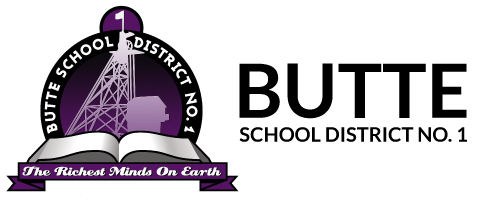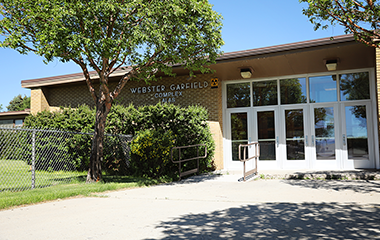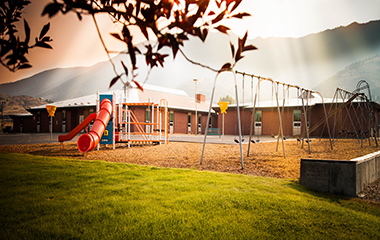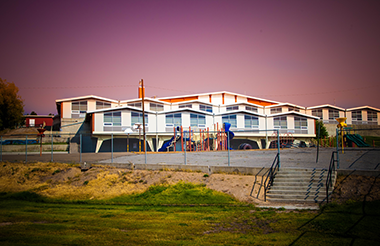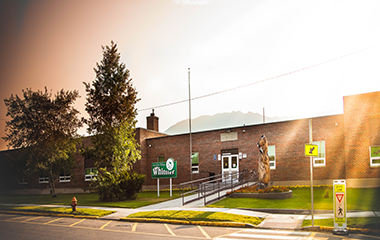Butte School District #1 SEL Program Scope & Sequence
BSD#1 Multi-Tiered System of Supports for Behaviors (MTSS-B)
The Butte School District's SEL Program follows a three-tiered model to support the social-emotional and behavioral needs of students, from universal support for all students to intensive, individualized interventions for those with significant needs. The model ensures that every student receives the appropriate level of support, with Tier 1 providing universal prevention and proactive strategies, Tier 2 offering targeted interventions for at-risk students, and Tier 3 providing intensive support for those with chronic or severe behavioral or emotional challenges.
Tier 1: Universal Differentiation (80-90% of Students)
Tier 1 provides proactive, preventative support for all students, fostering positive behaviors, emotional well-being, and social-emotional skills. These programs help create a safe, inclusive school environment and prevent behavioral issues. Tier 1 also incorporates evidence-based strategies to ensure high levels of academic and behavioral success.
PreK
- The Little Spot of Emotions Series: A set of children's books designed to help younger students understand their emotions and practice empathy. The series encourages emotional literacy and provides strategies for managing feelings.
- Second Step: A curriculum aimed at building social-emotional skills such as self-awareness, self-regulation, social awareness, relationship skills, and responsible decision-making.
- Responsive Classroom Morning Meetings: Daily meetings that foster community-building and social-emotional development. Students share feelings, set goals, and practice SEL skills such as conflict resolution, empathy, and cooperation.
- Kelso’s Choice: A conflict management program for children that teaches them to make positive choices in resolving conflicts.
- PAX Good Behavior Game: Focuses on promoting positive behaviors such as cooperation, self-regulation, and respect through structured activities known as the "Eight Kernels" of behavior.
- Beginning of the Year Home Visits: Early home visits conducted before the school year begins to engage with families, introduce SEL concepts, and build a positive foundation for students entering school.
Kindergarten
- The Little Spot of Emotions Series: A set of children's books designed to help younger students understand their emotions and practice empathy. The series encourages emotional literacy and provides strategies for managing feelings.
- Second Step: A curriculum aimed at building social-emotional skills such as self-awareness, self-regulation, social awareness, relationship skills, and responsible decision-making.
- Talk About Touch: An age-appropriate safety curriculum that teaches children about personal boundaries and safe choices—including lessons on gun and tool safety, bullying, personal space, safe and unsafe touches, the “Touching Rule,” and identifying medicine versus candy—to help them protect themselves and seek help from trusted adults.
- Responsive Classroom Morning Meetings: Daily meetings that foster community-building and social-emotional development. Students share feelings, set goals, and practice SEL skills such as conflict resolution, empathy, and cooperation.
- Kelso’s Choice: A conflict management program for children that teaches them to make positive choices in resolving conflicts.
- PAX Good Behavior Game: Focuses on promoting positive behaviors such as cooperation, self-regulation, and respect through structured activities known as the "Eight Kernels" of behavior.
- Beginning of the Year Home Visits: Early home visits conducted before the school year begins to engage with families, introduce SEL concepts, and build a positive foundation for students entering school.
- Julia Cook Books: Books that teach social skills and emotional management through engaging stories.
- Virtues Program: Teaches core virtues such as respect, responsibility, and empathy to help students develop strong moral character.
- Olweus Bullying Program: A comprehensive anti-bullying program designed to reduce bullying behaviors, improve peer relationships, and create a safer school climate.
- University of Missouri Early Identification System Mental Health Screener: A tool used to identify students who may need additional mental health support.
1st Grade
- The Little Spot of Emotions Series: A set of children's books designed to help younger students understand their emotions and practice empathy. The series encourages emotional literacy and provides strategies for managing feelings.
- Second Step: A curriculum aimed at building social-emotional skills such as self-awareness, self-regulation, social awareness, relationship skills, and responsible decision-making.
- Talk About Touch: An age-appropriate safety curriculum that teaches children about personal boundaries and safe choices—including lessons on gun and tool safety, bullying, personal space, safe and unsafe touches, the “Touching Rule,” and identifying medicine versus candy—to help them protect themselves and seek help from trusted adults.
- Strong Kids: An SEL curriculum focusing on building emotional strength and resilience in students.
- Responsive Classroom Morning Meetings: Daily meetings that foster community-building and social-emotional development. Students share feelings, set goals, and practice SEL skills such as conflict resolution, empathy, and cooperation.
- Kelso’s Choice: A conflict management program for children that teaches them to make positive choices in resolving conflicts.
- PAX Good Behavior Game: Focuses on promoting positive behaviors such as cooperation, self-regulation, and respect through structured activities known as the "Eight Kernels" of behavior.
- Julia Cook Books: Books that teach social skills and emotional management through engaging stories.
- Virtues Program: Teaches core virtues such as respect, responsibility, and empathy to help students develop strong moral character.
- Olweus Bullying Program: A comprehensive anti-bullying program designed to reduce bullying behaviors, improve peer relationships, and create a safer school climate.
- University of Missouri Early Identification System Mental Health Screener: A tool used to identify students who may need additional mental health support.
2nd Grade
- The Little Spot of Emotions Series: A set of children's books designed to help younger students understand their emotions and practice empathy. The series encourages emotional literacy and provides strategies for managing feelings.
- Second Step: A curriculum aimed at building social-emotional skills such as self-awareness, self-regulation, social awareness, relationship skills, and responsible decision-making.
- Talk About Touch: An age-appropriate safety curriculum that teaches children about personal boundaries and safe choices—including lessons on gun and tool safety, bullying, personal space, safe and unsafe touches, the “Touching Rule,” and identifying medicine versus candy—to help them protect themselves and seek help from trusted adults.
- Strong Kids: An SEL curriculum focusing on building emotional strength and resilience in students.
- Responsive Classroom Morning Meetings: Daily meetings that foster community-building and social-emotional development. Students share feelings, set goals, and practice SEL skills such as conflict resolution, empathy, and cooperation.
- PAX Good Behavior Game: Focuses on promoting positive behaviors such as cooperation, self-regulation, and respect through structured activities known as the "Eight Kernels" of behavior.
- Julia Cook Books: Books that teach social skills and emotional management through engaging stories.
- Virtues Program: Teaches core virtues such as respect, responsibility, and empathy to help students develop strong moral character.
- Talk About Touch: Teaches young children personal safety skills, including recognizing safe and unsafe touches, setting boundaries, and seeking help from trusted adults.
- Olweus Bullying Program: A comprehensive anti-bullying program designed to reduce bullying behaviors, improve peer relationships, and create a safer school climate.
- University of Missouri Early Identification System Mental Health Screener: A tool used to identify students who may need additional mental health support.
- Zones of Regulation: Teaches students to identify their emotions and regulate them using a color-coded system (Blue, Green, Yellow, Red). The program focuses on enhancing students' self-regulation skills and emotional awareness.
3rd Grade
- Second Step: A curriculum aimed at building social-emotional skills such as self-awareness, self-regulation, social awareness, relationship skills, and responsible decision-making.
- Strong Kids: An SEL curriculum focusing on building emotional strength and resilience in students.
- Responsive Classroom Morning Meetings: Daily meetings that foster community-building and social-emotional development. Students share feelings, set goals, and practice SEL skills such as conflict resolution, empathy, and cooperation.
- Talk About Touch: An age-appropriate safety curriculum that teaches children about personal boundaries and safe choices—including lessons on gun and tool safety, bullying, personal space, safe and unsafe touches, the “Touching Rule,” and identifying medicine versus candy—to help them protect themselves and seek help from trusted adults.
- PAX Good Behavior Game: Focuses on promoting positive behaviors such as cooperation, self-regulation, and respect through structured activities known as the "Eight Kernels" of behavior.
- Julia Cook Books: Books that teach social skills and emotional management through engaging stories.
- Virtues Program: Teaches core virtues such as respect, responsibility, and empathy to help students develop strong moral character.
- Olweus Bullying Program: A comprehensive anti-bullying program designed to reduce bullying behaviors, improve peer relationships, and create a safer school climate.
- University of Missouri Early Identification System Mental Health Screener: A tool used to identify students who may need additional mental health support.
- Zones of Regulation: Teaches students to identify their emotions and regulate them using a color-coded system (Blue, Green, Yellow, Red). The program focuses on enhancing students' self-regulation skills and emotional awareness.
- Restorative Circles: Promotes conflict resolution and community building by allowing students to discuss issues and resolve conflicts in a supportive environment.
4th Grade
- Second Step: A curriculum aimed at building social-emotional skills such as self-awareness, self-regulation, social awareness, relationship skills, and responsible decision-making.
- Strong Kids: An SEL curriculum focusing on building emotional strength and resilience in students.
- Responsive Classroom Morning Meetings: Daily meetings that foster community-building and social-emotional development. Students share feelings, set goals, and practice SEL skills such as conflict resolution, empathy, and cooperation.
- PAX Good Behavior Game: Focuses on promoting positive behaviors such as cooperation, self-regulation, and respect through structured activities known as the "Eight Kernels" of behavior.
- Julia Cook Books: Books that teach social skills and emotional management through engaging stories.
- Virtues Program: Teaches core virtues such as respect, responsibility, and empathy to help students develop strong moral character.
- Olweus Bullying Program: A comprehensive anti-bullying program designed to reduce bullying behaviors, improve peer relationships, and create a safer school climate.
- University of Missouri Early Identification System Mental Health Screener: A tool used to identify students who may need additional mental health support.
- Zones of Regulation: Teaches students to identify their emotions and regulate them using a color-coded system (Blue, Green, Yellow, Red). The program focuses on enhancing students' self-regulation skills and emotional awareness.
- Restorative Circles: Promotes conflict resolution and community building by allowing students to discuss issues and resolve conflicts in a supportive environment.
5th Grade
- Responsive Classroom Morning Meetings: Daily meetings that foster community-building and social-emotional development. Students share feelings, set goals, and practice SEL skills such as conflict resolution, empathy, and cooperation.
- Second Step: A curriculum aimed at building social-emotional skills such as self-awareness, self-regulation, social awareness, relationship skills, and responsible decision-making.
- Strong Kids: An SEL curriculum focusing on building emotional strength and resilience in students.
- PAX Good Behavior Game: Focuses on promoting positive behaviors such as cooperation, self-regulation, and respect through structured activities known as the "Eight Kernels" of behavior.
- Julia Cook Books: Books that teach social skills and emotional management through engaging stories.
- Virtues Program: Teaches core virtues such as respect, responsibility, and empathy to help students develop strong moral character.
- Digital Citizenship: Educates students on responsible online behavior and digital literacy.
- Olweus Bullying Program: A comprehensive anti-bullying program designed to reduce bullying behaviors, improve peer relationships, and create a safer school climate.
- University of Missouri Early Identification System Mental Health Screener: A tool used to identify students who may need additional mental health support.
- Zones of Regulation: Teaches students to identify their emotions and regulate them using a color-coded system (Blue, Green, Yellow, Red). The program focuses on enhancing students' self-regulation skills and emotional awareness.
- Vape Presentation (Butte Health Department): Educates students about the dangers of vaping and promotes healthy choices.
- Sexting Presentation (Butte Police): Educates students about the risks and consequences of sexting.
- Restorative Circles: Promotes conflict resolution and community building by allowing students to discuss issues and resolve conflicts in a supportive environment.
- Introduction to Second Step Brain Science: Teaches students how the brain helps them manage emotions, make decisions, and build positive relationships.
6th Grade
- Strong Kids: An SEL curriculum focusing on building emotional strength and resilience in students.
- Responsive Classroom Morning Meetings: Daily meetings that foster community-building and social-emotional development. Students share feelings, set goals, and practice SEL skills such as conflict resolution, empathy, and cooperation.
- PAX Good Behavior Game: Focuses on promoting positive behaviors such as cooperation, self-regulation, and respect through structured activities known as the "Eight Kernels" of behavior.
- Julia Cook Books: Books that teach social skills and emotional management through engaging stories.
- Virtues Program: Teaches core virtues such as respect, responsibility, and empathy to help students develop strong moral character.
- Olweus Bullying Program: A comprehensive anti-bullying program designed to reduce bullying behaviors, improve peer relationships, and create a safer school climate.
- Digital Citizenship: Educates students on responsible online behavior and digital literacy.
- Zones of Regulation: Teaches students to identify their emotions and regulate them using a color-coded system (Blue, Green, Yellow, Red). The program focuses on enhancing students' self-regulation skills and emotional awareness.
- Restorative Circles: Promotes conflict resolution and community building by allowing students to discuss issues and resolve conflicts in a supportive environment.
- Vape Presentation (Butte Health Department): Educates students about the dangers of vaping and promotes healthy choices.
- Sexting Presentation (Butte Police): Educates students about the risks and consequences of sexting.
- Rural Behavioral Health Screener: Assesses students' mental and behavioral health to identify those who may need additional support.
- SOS Training: Suicide prevention training that teaches students to recognize signs of emotional distress and seek help.
- MCIS (Montana Career Information System): A career planning tool that helps students explore career options and plan for their future.
- Draw the Line Respect the Line: Teaches students about setting boundaries and respecting others' boundaries.
7th & 8th Grades
- Advisor/Advisee Morning Meetings: Builds relationships and provides guidance through regular meetings between advisors and students.
- Virtues Program: Teaches core virtues such as respect, responsibility, and empathy to help students develop strong moral character.
- Digital Citizenship Program: Educates students on responsible online behavior and digital literacy.
- Olweus Bullying Program: A comprehensive anti-bullying program designed to reduce bullying behaviors, improve peer relationships, and create a safer school climate.
- Restorative Circles: Promotes conflict resolution and community building by allowing students to discuss issues and resolve conflicts in a supportive environment.
- Vape Presentation (Butte Health): Educates students about the dangers of vaping and promotes healthy choices.
- Rural Behavioral Health Screener: Assesses students' mental and behavioral health to identify those who may need additional support.
- SOS Training: Suicide prevention training that teaches students to recognize signs of emotional distress and seek help.
- MCIS (Montana Career Information System): A career planning tool that helps students explore career options and plan for their future.
- Draw the Line Respect the Line: Teaches students about setting boundaries and respecting others' boundaries.
- Student Ambassador Program: Student ambassadors orient and mentor new students to the school and school’s programs.
- Peer Conflict Resolution: Teaches students to resolve conflicts with peers in a constructive and respectful manner.
- Character Counts: Promotes character development through lessons on trustworthiness, respect, responsibility, fairness, caring, and citizenship.
9th-12th Grades
- MCIS (Montana Career Information System): A career planning tool that helps students explore career options and plan for their future.
- Peer Mentoring for Honor Students: A mentoring program where honor students provide guidance and support to their peers.
- Excel Club: Promotes academic excellence and leadership skills among students.
- SOS (Signs of Suicide) Training (9th & 11th Grade): Suicide prevention training that teaches students to recognize signs of emotional distress and seek help.
- Rural Behavioral Health Screener (10th Grade): Assesses students' mental and behavioral health to identify those who may need additional support.
- Teen Mental Health Program (12th Grade): A program that addresses mental health issues relevant to teenagers and provides strategies for managing mental health.
- Graduation Counseling: Provides support and guidance to students as they plan for graduation and their future.
- Restorative Practices: Focuses on repairing harm and building community through restorative justice principles.
School-Wide Programs
- Character Education: Programs that teach students about core values such as respect, responsibility, and empathy.
- Attendance Assemblies: School-wide events that recognize and promote good attendance.
- 200 Club: A program that rewards students for positive behavior and achievements.
- Student of the Month: Recognizes students who demonstrate outstanding character and academic performance.
- Honor Roll: Recognizes students who achieve high academic standards.
- Hall of Fame City Competition: A competition that promotes school spirit and academic excellence.
- SOARS Wraparound Services: Student case managers provide services that involve a holistic, student-centered approach that brings together multiple systems—education, mental health, family, and community resources—to address the comprehensive needs of the student and their family.
- TRIO Program: A program that supports first-generation, low-income, and disabled students by offering tutoring, college counseling, financial aid guidance, and mentorship to help them succeed academically and pursue higher education.
- Student Council: Provides students with leadership opportunities and a voice in school decisions.
- School Broadcast: A program that allows students to produce and present school news and announcements.
- Red Ribbon Week: A campaign that promotes drug-free lifestyles.
- Upward Bound: Program that helps low-income and first-generation high school students succeed academically by providing tutoring, college preparation, mentoring, and cultural enrichment to increase their chances of pursuing higher education.
- Special Olympics Unified Champions: Promotes inclusion through sports and activities involving students with and without disabilities.
- Family Literacy/Math/STEM Nights: Events that engage families in educational activities.
- PAX Parents: A program that involves parents in promoting positive behavior at home and school.
- Positive Postcards: A program where teachers send positive notes home to recognize students' achievements.
- Indian Education Fair: An event that celebrates and educates about Native American culture and history.
- Family Dinner Nights: Events that bring families together for a meal and community-building activities.
- School Carnival: A fun event that promotes school spirit and community involvement.
- MLK Jr. Day of Service: A day dedicated to community service in honor of Martin Luther King Jr.
- Thanksgiving Food Drive: A campaign to collect food for those in need during the Thanksgiving season.
- Parent/Staff Thanksgiving Feast: An event that brings parents and staff together to celebrate Thanksgiving.
- School Pantries: Provides food and supplies to students and families in need.
- Open House: An event that allows parents to visit the school and meet teachers.
- Shoes for the Sole: A program that provides shoes to students in need.
Tier 2: Targeted Interventions (5-15% of Students)
Tier 2 provides more focused support for students who are at risk of academic or behavioral difficulties. These interventions are more targeted and provided in small groups or individually. The goal is to address specific barriers to success and offer timely, efficient support.
PreK to 12th Grade
- Check-In Check-Out (CICO): A structured process in which students check in with a mentor at the start of the day to set goals and check out at the end of the day to review progress. This intervention supports students needing additional behavior monitoring and positive reinforcement.
- Peer Mentoring: Older or more experienced students are paired with younger or at-risk students to offer guidance and emotional support. This program helps foster positive peer relationships, empathy, and problem-solving skills.
- Social Emotional Small Groups: Small group sessions designed to focus on specific SEL skills, such as emotional regulation, conflict resolution, stress management, and developing positive peer relationships. These groups are tailored to meet the needs of at-risk students.
- 2X10 Program: A relationship-building strategy where staff members spend 2 minutes each day for 10 consecutive days talking with a student about non-academic topics. This builds trust, increases student engagement, and helps reduce behavioral issues.
- Big Brothers Big Sisters: A mentoring program that pairs students with older mentors to provide guidance and support.
- 21st CCLC ROCKIES After school Program: Provides additional SEL support and coupled with activities for students in K-6.
Tier 3: Intensive Interventions (1-5% of Students)
Tier 3 provides individualized, intensive interventions for students with significant behavioral, emotional, or mental health challenges. These interventions are comprehensive, assessment-based, and designed to address the root causes of behavioral and emotional difficulties.
PreK to 12th Grade
- Check and Connect: A mentoring program focused on students who are disengaged or at high risk of dropping out. Students are paired with a mentor who tracks progress, provides emotional support, and helps the student stay connected to school.
- Possible Replacement Curriculum: Alternative curriculum options tailored to meet the needs of students.
- Functional Behavior Assessment (FBA): A process to identify the specific causes and triggers of a student's challenging behavior. The FBA provides the data necessary to create targeted, individualized behavior interventions.
- CSCT Referral (Child and School Community Teams): A multidisciplinary team approach to support students with significant emotional or behavioral needs. The team works with the student and family to develop a comprehensive support plan that addresses both school and home needs.
- Behavior Improvement Plans (BIP): Tailored, data-driven plans developed based on the student’s behavioral history. BIPs outline specific strategies to address and reduce problematic behaviors, including teaching alternative behaviors, increasing positive reinforcement, and modifying the school environment.
Program Delivery and Monitoring
- Tier 1 interventions are implemented universally for all students. They are monitored through mental and behavioral health screenings (Rural Behavioral Health Initiative and Early Intervention Screeners), student progress data, and teacher feedback.
- Tier 2 interventions are implemented for students identified as at risk based on screening results, behavior data, or teacher referrals. These interventions are monitored regularly through goal-setting, mentor feedback, and progress reviews.
- Tier 3 interventions are highly individualized, based on detailed functional behavioral assessments and behavior data. A multidisciplinary tam ensures that these students receive the appropriate, ongoing support to address their needs.
This tiered approach ensures that all students in the Butte School District receive the right level of support to foster their emotional, social, and academic success. By integrating evidence-based practices and screening tools, the Butte School District provides a comprehensive system to meet the diverse needs of its student population.
Key Adjustments:
- PreK-2nd Grade: Focus is on early SEL development and structured learning routines.
- 3rd-5th Grade: Transitions to digital safety (Digital Citizenship) and expands small group interventions.
- 6th-8th Grade: Restorative practices and prevention programs for emerging adolescent issues.
- 9th-12th Grade: Greater emphasis on student leadership, peer mentoring, and preparing for post-graduation transitions.
This site provides information using PDF, visit this link to download the Adobe Acrobat Reader DC software.
